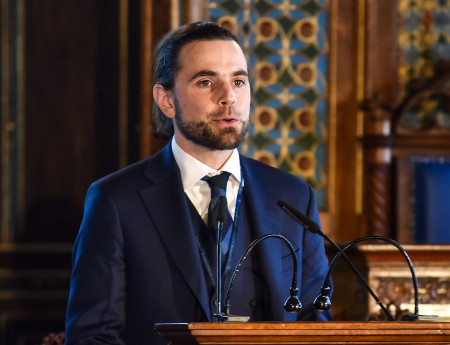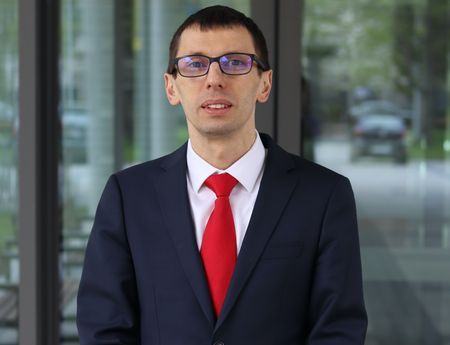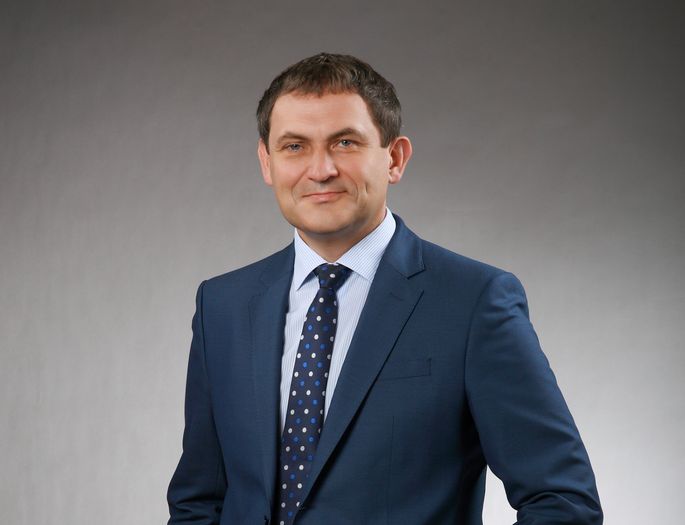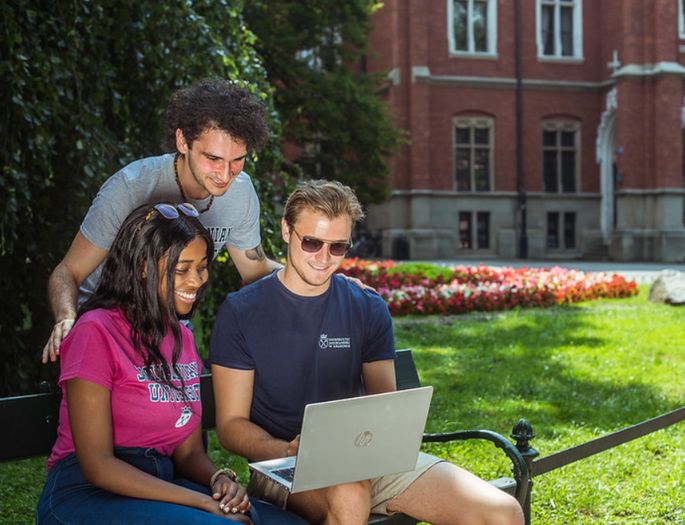
The Polish National Agency for Academic Exchange ha announced the results of the call for proposals for joint Polish-Austrian research projects. The sixteen winners include Dr Mateusz Sikora from the JU Małopolska Centre of Biotechnology, who will carry out the project "Interaction mechanism and glycan interplay in binding of SARS-CoV-2 variants to human ACE2" in collaboration with scientists from the Johannes Kepler University Linz.
The goal of the grant-winning project is to investigate how changes of amino acids in SARS CoV-2 spike variants and ACE2 receptor itself influence the strength of interaction. The research team aims to explore the mechanism of mechanical stability of the spike-ACE2 complex and study the process of disconnection under external forces, which are typically present in mucus/respiratory tract. The project will also explore the effect of spike and ACE2 glycans on the stability of the complex. The project combines measurements by atomic force microscopy (performed by Prof. Peter Hinterdorfer from the Johannes Kepler University Linz) and modeling the process of spike protein disconnection from ACE2 using molecular dynamics simulations. The study aims to explain how the possible new SARS-CoV-2 variants will bind to ACE2, which will allow to predict their infectivity. They are also crucial for understanding how viruses’ fusion proteins interact with human receptors.
The Polish-Austrian project aims at supporting mobility of scientists who conduct research projects agreed on and run jointly by eligible applicants from Poland and Austria. The grant is awarded for 2 years and covers mobility-related expenses only, the rest of the funding comes from the Dioscuri programme of the National Science Centre.
Dr Mateusz Sikora is the leader of the Dioscuri Centre for Modelling of Posttranslational Modifications at the Małopolska Centre of Biotechnology. He studied at the Jagiellonian University, then obtained a PhD degree from the Institute of Physics of the Polish Academy of Sciences in Warsaw, In 2012 he started a postdoctoral fellowship at the Institute of Science and Technology Austria. Since 2017 he has worked at the Max Planck Institute of Biophysics in Gerhard Hummer’s group, which specialises in theoretical biophysics. He returned to Poland in March 2023, in order to continue his research career with the support of a Polish-German grant awarded within the framework of the Dioscuri programme of the Max Planck Society and the National Science Centre.





